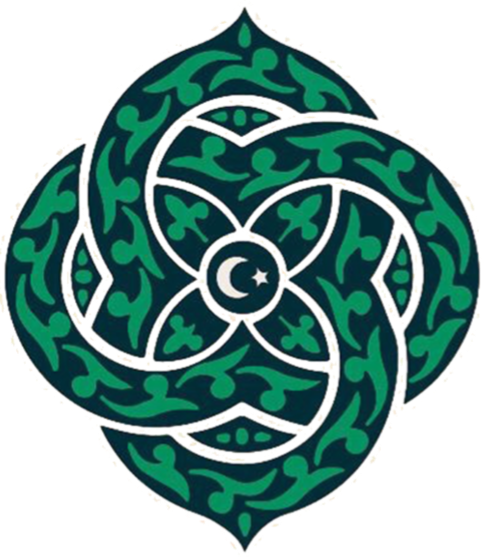Introduction to Race, Class and Gender Studies & left-wing Ideologies
Learn the history and occupation of Palestine, the claims used to justify occupation, how to counter them robustly with well-established facts and advocate for restoring the rights of the Palestinians.
Last Updated: 6/2021
This course includes:
30hrs taught classroom sessions delivered over 10 weeks
10 Tutorial sessions for additional support
10 Downloadable course materials
1 Coursebook
Course to begin on 25th February 2022- reserve your space now
What You Will Learn
Detailed history of the land of Palestine until modern day
The strategic interests and aims of all the major powers, groups and stakeholders
Familiarity with the arguments for and against Zionist narratives, and the ability to evaluate them based on established facts
To articulate a strong counter-argument to pro-Israeli occupation rhetoric in a variety of settings, from academic, to television and media, and even in legal arenas
The ability to deliver informed advocacy and the call to Islamic solutions within the Muslim world.

Instructor
Abdullah Al-Andalusi
Abdullah is the Head of Occidentology at The Quran Institute with 15 years of experience critically engaging secularism, liberalism, zionism, atheism, christianity and judaism across a variety of platforms. He teaches the reality behind Western philosophies, political systems, values and intellectual self-justifications.
Course Curriculum
This is what will be covered in this course
COURSE INTRODUCTION
• Topic Overview
• Course aims
• Summary of positions and arguments on the issue of Palestine
• Course plan and outcomes
CORRECT USE OF THIS COURSE
• Correct mentality and approach to the issue of Palestine
• Opposing non-Islamic, racist and ethno-nationalist views
• Eschewing tendencies to clandestine-conspiratorial or end-time apocalyptic views
• Seriousness in pursuing positive advocacy
• Islamic adab and akhlaaq in discussion and advocacy
• Origin of toponyms and ethnonyms
• Prehistory of the land of Canaan
• Ancient history of the land of Canaan (including Phoenicia and Philistia) and Egypt (archeological and Biblical accounts)
• The Patriarchal period (Biblical account)
• Twelve Tribes of Israel and the period of the Judges (Biblical account)
• The Kingdom of Israel (Biblical account)
• The period of the two successor states, Kingdom of Samaria and Kingdom of Judah
• Assyrian and Babylonian invasions, imperial control, Hebrew revolts and exile
• The Second Temple Period - Persian era return from Babylonian exile, Hellenistic era, Hasmonean dynasty, Herodian dynasty and Roman clientship
• The Jewish-Roman wars/rebellions
• Beginning of major Jewish migrations and diaspora
• Roman province(s) of Judea, then Palestina (and later 3 divisions), and Sassanian temporary conquest (and Jewish autonomy)
• Conversions of Jews to Christianity
• Muslim conquest of (eastern) Roman Syria
• Conversions of Christians to Islam
• Rashidoon Caliphate era
• Umayyad era
• Abbasid era
• Crusader era, and the Ayyubid and later Mamluk response
• Ottoman era administration
• Origin of the idea of Nationalism in Western 19th-century romanticism
• Theodore Hertzl and the Zionist movement
• Early Jewish migrations into the Ottoman levant
• The Balfour declaration
• World War 1 - conquest by British forces and Arab proxies
• The Remo conference, League of Nations Mandate for Palestine
• British plans, policies and Arab proxies
• Dissolution of the Ottoman Caliphate and the treaty of Lausanne
• British Mandate of Palestine era
• Ha’avara agreement, and Jewish migration to Palestine
• The Peel Commission
• The Arab revolt and the 1939 White Paper
• Anti-semitism in Europe, World War 2, and the world reaction to the Holocaust
• Post-WW2 immigration into Palestine
• Haganah, Irgun and Stern gang terror campaigns
• The United nations Partition plan
• British withdrawal from Palestine
• Civil war in Palestine (1947-49)
• Muslim conquest of (eastern) Roman Syria
• Conversions of Christians to Islam
• Rashidoon Caliphate era
• Umayyad era
• Abbasid era
• Crusader era, and the Ayyubid and later Mamluk response
• Ottoman era administration
• Origin of the idea of Nationalism in Western 19th-century romanticism
• Theodore Hertzl and the Zionist movement
• Early Jewish migrations into the Ottoman levant
• The Balfour declaration
• World War 1 - conquest by British forces and Arab proxies
• The Remo conference, League of Nations Mandate for Palestine
• British plans, policies and Arab proxies
• Dissolution of the Ottoman Caliphate and the treaty of Lausanne
• British Mandate of Palestine era
• Ha’avara agreement, and Jewish migration to Palestine
• The Peel Commission
• The Arab revolt and the 1939 White Paper
• Anti-semitism in Europe, World War 2, and the world reaction to the Holocaust
• Post-WW2 immigration into Palestine
• Haganah, Irgun and Stern gang terror campaigns
• The United nations Partition plan
• British withdrawal from Palestine
• Civil war in Palestine (1947-49)
• The Taba agreement / “Oslo 2”
• The Camp David summit
• The Taba summit
• The Second Intifada 2000-05 and Mitchell report
• The road-map agreement
• Gaza: Israeli withdrawal (2005), the election of 2006 and sanctions against Gaza
• the Israeli hafrada plan & the West Bank separation wall
• Lebanon war 2006
• Fatah-Hamas conflict of 2006-07
• The Annapolis conference
• UN recognition as non-member observer state
• Bombing of Gaza 2012
• Bombing of Gaza 2014
• Trump peace proposal
• UAE, Bahrain, Sudan and Moroccan recognition of Israel (2020)
• Bombing of Gaza 2021
• History of Israeli military operations against Syria and Iraq
• History of Israeli clandestine operations in the Middle East (Including Iran)
STRATEGIC INTERESTS OF THE MAJOR PROTAGONISTS AND STAKEHOLDERS
• The British Imperial policies and use of Arab proxies to secure the creation of Israel
• The United States of America and its Middle East Policy
• British and French, and wider European Union policies and relations with Israel
• The policies and interests of governments in the Muslim world towards Israel and the Palestinians
• The Soviet, and later, Russian policies towards Israel and the Middle East
• History of resolutions, enactment and vetoes by the United Nations Committee and Security Council
• Modern Israel advocacy groups
• Modern pro-Palestine movements and groups
• Christian Zionism in right-wing United States politics
• Far-right wing organisations in Western countries and Islamophobia
REVIEW OF THE MAJOR CONTENTIOUS ISSUES
• Recognition of Israel by the ‘Arab-states’
• Israel’s internal security concerns
• Israel’s ‘defensible borders’ concerns
• Status and divisibility of Jerusalem
• Gaza blockade
• Israel’s building of settlements on the West Bank
• Israel’s separation barrier in the West Bank
• ‘land for peace’ claims
• Control of the Golan Heights
• 1967 borders and the description of Israel’s as an ‘occupation’
• Feasibility and degree of autonomy of a Palestinian state
REVIEW OF THE PROPOSED SOLUTIONS
• One-state solution
• Two-state solution
• Three-state or ‘zero-state’ solutions
DE JURE LEGAL DISCRIMINATION BASED UPON RACE/ETHNICITY (WITHIN ISRAEL)
• Palestinian ‘absentee’ laws for land appropriation by State of Israel
• East Jerusalem Jewish quarter property purchase exclusivity
• Right of return for only one ethnicity (& religious conversion) [Aliya]
• Unequal Marriage and family reunification laws
• Restriction of political image laws (e.g. outlawing the Palestinian flag)
• Israel’s nation-state laws
DE FACTO LEGAL DISCRIMINATION BASED UPON RACE/ETHNICITY (WITHIN ISRAEL)
• Right to build permit allocation and selective enforcement
• Discriminatory policies by town admissions committees
• Israel Land Authority (ILA) discriminatory allotments
• Selective discrimination Lack of Israeli-Palestinian representation on planning committees
DE FACTO LEGAL DISCRIMINATION BASED UPON RACE/ETHNICITY (IN OCCUPIED TERRITORIES)
• Expropriation of land in West Bank for “public needs”
• Requisition of land in West bank for “military needs”
• Absentee land appropriation in West Bank & East Jerusalem
• Treatment of West Bank Palestinians
EVALUATING ACCURACY OF FREQUENTLY ALLEGED COMPARISONS:
• Apartheid South Africa
• Pre-civil rights ‘Jim Crow’ Southern United States of America
OVERVIEW OF JUDAISM AND CHRISTIANITY, CREEDS AND ORAL AND TEXTUAL SOURCES
JEWISH RELIGIOUS PERSPECTIVES & INTERPRETATIONS
• Judaism’s concept of the Holy Land
• The Temple Mount and Jewish atonement and sacrificial laws
• Jewish concept of the Mosaic and Davidic Covenants and status of the land of Palestine
• Judaism’s concept of Messiah and differing schools of thought on when to return to the land of Palestine
• Differing schools of thought on the religious-based legitimacy of Israel as a secular state
CHRISTIAN RELIGIOUS PERSPECTIVES & INTERPRETATIONS
• Christianity’s ‘New Covenant’ and the Christian view of the Jewish Tanakh (Old Testament)
• Christian end-times eschatology and Jewish residence in the Holy Lands
• The first Zionists: Christian Zionism
ISLAMIC PERSPECTIVES & INTERPRETATIONS
• Islam’s concept of the Holy Land and the Al-Aqsa Masjid
• Islam’s view of the Covenant of Moses
• Islamic eschatology and the Holy Lands
• Islamic perspectives on the occupation of Palestine
A REVIEW OF NATIONALIST ARGUMENTS FOR AND AGAINST ZIONISM:
• Origins of nationalism, and the concept of the Nation-state
• Ideology and vision of Theodore Hertzl
• Critical evaluation of arguments made in support of Israeli and Palestinian nation-states
A REVIEW OF HISTORICAL-TIE/INHERITANCE-BASED ARGUMENTS FOR AND AGAINST ZIONISM:
• Zionist argument of historical ancestry and ‘right to return’
• Zionist delegitimisation of ancient Palestinian ties to the land of Palestine
• Review of archaeological, genetic and histographical research
REVIEW OF MORAL ARGUMENTS MADE FOR AND AGAINST ZIONISM:
• Anti-semitism, origins and definition
• History of anti-semitism in Europe and Western countries
• ‘anti-zionism is anti-semitism’: History of the delegitimisation of Zionist critical narratives
• Treatment of Palestinians in Israel and Israeli-controlled territories
REVIEW OF ‘MORAL HIGH-GROUND OF CONDUCT’ ARGUMENTS FOR AND AGAINST THE ISRAELI STATE:
• Arguments used to justify Israeli military operations and population control measures
• Arguments used to justify Palestine military operations and resistance against population control measures
• Arguments for and against Israel, ‘Arab states’ and Palestinians based on desiring and breaching ‘peace’
THE ISLAMIC VIEWPOINT TOWARDS THE FACTORS INVOLVED IN THE PALESTINE ISSUE
• Islamic definition of oppression, injustice and occupation
• Islamic viewpoint towards nation-states
• Islamic conception of duty within the Muslim Umma
• The perspective of Islamic law towards the Palestine issue
• Islamic guidance, method and purposes on advocating justice with non-Muslims within non-Islamic contexts and power structures
• Islamic guidance, method and purposes on advocating Islamic solutions with Muslims within the Muslim world
ASSESSING POTENTIAL SOLUTIONS TO THE PALESTINE ISSUE
• Evaluating immediate feasible actions by Muslim states, diplomatic, economic and punitive
• Evaluating immediate feasible actions through civil advocacy and Boycott, Divestment and Sanctions (BDS) in the West and beyond
• CASE STUDY: South Africa
• Evaluating long-term feasible solutions
Description
Over this ten week course, attendees will learn the major streams of political and ethical thought underpinning modern left-wing politics, from its origins in Continental Philosophy (Kant, Hegel and existentialism) and Marxist thought through to their evolution co-joined with with post-structuralist (postmodernist) critique, and their current application in relation to race, class and gender today.
The course will give attendees a foundation in understanding the core creeds, justifications and value systems upon which the political philosophies of modern Western debates on equality, justice and identity politics are based.
The course will critically examine these from an Islamic basis and discuss potential Islamic responses. The course will be a must for all those who's work engages with the left-wing, or those of the youth who've been exposed to left-wing politics.
Online Requirements
-
Anyone with a basic understanding of websites
-
Should have a desktop computer, laptop, tablet or a mobile device
-
Should have access to internet via WiFi or Mobile data
-
Should allow access to the computer to download files
Click "Sign up now" to get:
Full Digital Access (released weekly)
10 additional online tutorial sessions
10 Downloadable course materials
Coursebook
Lifetime online access
